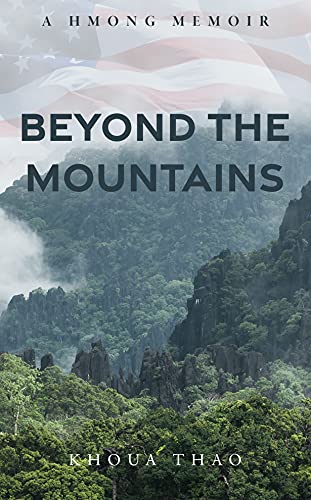
Khoua Thao, Beyond the Mountains. Coppell, TX: Publisher not identified, 2021.
The beginning of Khoua Thao’s memoir, Beyond the Mountains, is a familiar scene reminiscent of Vietnam and more recently, Afghanistan: Desperate people crowding the airport in Long Cheng, Laos, struggling to board US military planes to evacuate to safety. Thao and his family were among the many Hmong of Laos who weren’t on the planes. However, his father found a way to get his family, consisting of his wife and five young children out of Laos into Thailand, and then eventually to the United States.
Most of the book is a recollection of his childhood life before his family left the familiarity of life in the Laotian mountains. In all the small villages and enclaves where he lived, Thao had good memories of his life, despite living in what we modern Americans would consider to be very poor conditions. His father was a valued elder of the community, and neighbors worked collectively to survive and live, which they did with joy and dignity.
Many of these stories describe events that show how resourceful and well-respected Thao’s father was. With very little, he managed to keep his family safe from animal as well as human predators. Thao also writes with clear detail how he and his family appreciated everything they had, from the small scoop of rice and chicken leg or fried grubs that he would have for lunch, to the mementos that his family tried to take with them as they fled their mountain village (two blankets from a family friend), as they secretly tried to escape Laos by pretending to be traveling to visit family in Viengchan. The blankets did not make it with them to the United States; they were confiscated by the military at a roadblock.
This detail does much to prepare the reader for the culture shock that the author and his family experienced once they were able to successfully emigrate from the mountains of Laos to the stark, modern streets of Selma, Alabama. This section is the shortest in the book, but the reader can really understand the amazement and gratitude that the family felt as they were introduced to indoor plumbing, soft beds, and a refrigerator that kept food cool and fresh. Khoua Thao’s memoir is an excellent resource for anyone wishing to know more about the Hmong people and their refugee experience.